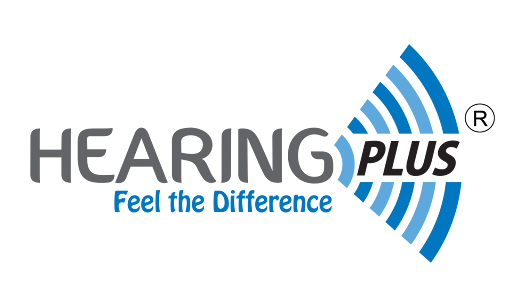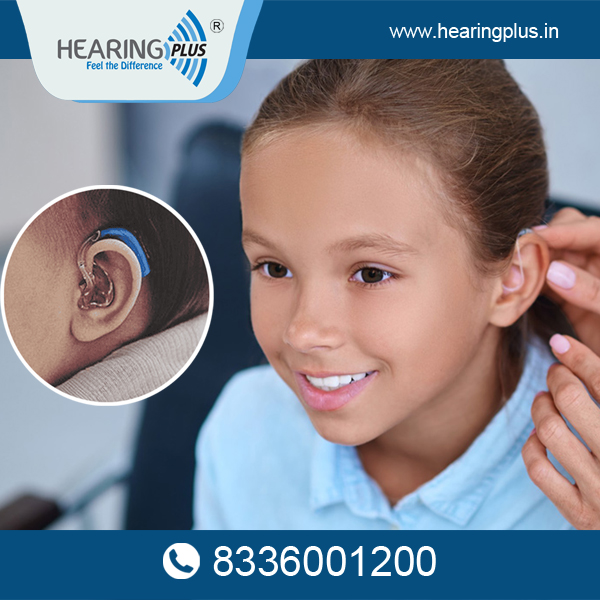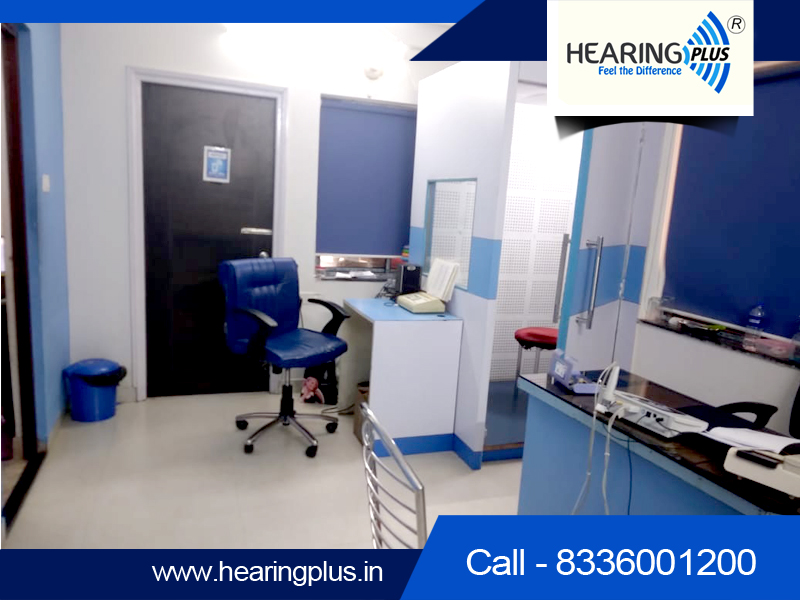
Are you experiencing difficulties following speech in noisy situations or finding yourself turning up the TV/radio volume frequently? It may be a sign of hearing loss. But you are not alone, nor should you isolate yourself from social events. Hearing loss is a common issue, affecting 1.5 billion individuals worldwide, which is nearly 20% of the global population. According to the WHO, it is projected that more than 700 million people could suffer from disabling hearing loss by 2050.
This article will discuss the seven popular and proven treatment solutions you may expect from your audiologist on your next visit to your nearest clinic for hearing loss treatment in Kolkata.
Top 7 Tried-and-Tested Hearing Loss Treatment Solutions
Let’s understand the most effective hearing loss treatment options that will help you regain your hearing abilities.
Hearing Aids
Hearing aids are one of the most effective and popular hearing loss treatments that are widely preferred among most hearing-impaired individuals. These are small, battery-operated devices designed to amplify sounds in the most natural manner possible, enabling the person to hear different sounds that they have been missing out on all this time. Individuals wearing hearing aids may start hearing speech sounds and participate in day-to-day conversations, enjoy music, and listen to soothing environmental sounds, like birds chirping, leaves rustling, rainfall, etc.
The modern-day hearing aids come in a range of styles and sizes, such as behind-the-ear (BTE), receiver-in-canal (RIC)/receiver-in-the-ear (RITE), in-the-ear (ITE), in-the-canal (ITC), completely-in-canal (CIC), and invisible-in-canal (IIC). Each of them provides a unique solution tailored to the person’s specific type and degree of hearing loss, lifestyle choices, cosmetic preferences, and budget. Hearing aid devices are non-invasive and adjustable, suitable for mild to profound hearing loss problems.
Cochlear Implants
Cochlear implants are most suitable for individuals with profound hearing loss, particularly when hearing aids are not offering much benefit. The internal device of a cochlear implant is surgically implanted under the skin, and a sound processor is worn behind the ear. It is an electronic device that bypasses the damaged parts of the inner ear (cochlea) and directly stimulates the auditory nerve. Cochlear implants provide significant improvement in speech comprehension, and for best outcomes, a rehabilitation process (especially speech therapy) is recommended after the surgical procedure.
Assistive Listening Devices (ALDs)
Assistive listening devices (ALDs) can either be used as standalone solutions or along with hearing aids. They include FM systems, infrared systems, TV streamers, induction loops, Bluetooth systems, and personal amplifiers. ALDs are designed to amplify sounds in varying listening situations, including classrooms, seminars, theatres, restaurants (or other noisy environments), or at home. These devices can improve speech understanding even in crowded places.
Speech Therapy
Hearing loss is often associated with difficulty in understanding speech and communication, which explains why people with hearing impairment also face challenges in maintaining conversations. Speech therapy and auditory training help people understand speech and language better after wearing hearing aids or undergoing cochlear implants after a prolonged period of living with untreated hearing loss. These therapy sessions help them adjust to the new world of sounds by enhancing listening, communication, and lip-reading.
Tinnitus Management and Sound Therapy
Many individuals with hearing loss experience disturbing ringing or buzzing sounds in their ears, a condition known as tinnitus. To address tinnitus, your audiological team may recommend tinnitus retraining therapy (TRT), sound therapy, and masking devices to minimise the ringing sounds for overall hearing comfort.
Auditory Brainstem Implants (ABIs)
People with profound hearing loss who find little to no benefit from cochlear implants (which may occur when the auditory nerves are damaged), auditory brainstem implants (ABIs) may be effective. ABIs bypass the cochlea and the auditory nerve to stimulate the brainstem directly. The process may require brain surgery, followed by extensive therapy to improve listening experiences.
Gene Therapy and Stem Cell Research
Gene therapy and stem cell treatments are providing promising outcomes in reversing certain types of hearing loss and regenerating the damaged hair cells of the inner ear. Gene therapy may be effective in treating permanent hearing loss by restoring the function of damaged sensory cells in the inner ear.
On the other hand, stem cell therapy works by replacing or regenerating damaged hair cells in the cochlea. It works by making the most out of the existing sensory cells to enhance one’s optimal cochlear function.
However, more research and development are needed before it enters mainstream hearing loss treatment. It has a high potential to transform the scenario of hearing loss treatment from managing symptoms and amplifying sounds to repairing the entire biological and anatomical structure of the ear.
Key Takeaway
There is no single solution for hearing loss – one may need a combination of two or more treatments or rehabilitation care to improve outcomes. For instance, a person who has lived with hearing loss for months or years may experience better hearing with a combination of hearing aids and speech therapy. Consult a qualified and experienced audiologist at a reputable clinic for hearing loss treatment in Kolkata. Because you deserve to live in a connected world, maintain healthy relationships, and enjoy an improved quality of life.
FAQs
A professional audiologist will be able to answer this after diagnosing and assessing the type and degree of your hearing loss. It also depends on your lifestyle needs, ear shape, digital technologies you prefer, budget, and cosmetic considerations. A certified audiological team will always conduct a hearing aid trial to assess your comfort levels and outcomes before recommending the best device.
Yes, cochlear implantation surgery is safe, provided you undergo the surgical procedures from a qualified team of audiologists, ENT specialists, and surgeons. Before conducting the surgery, the team will discuss the expectations of a cochlear implant and whether it will address your hearing loss problems. The risks associated with cochlear implants, like device failure or infection, are relatively rare.
Yes, kids as young as a few months old can be good candidates for cochlear implants. It is the best treatment option for children and adults with severe to profound hearing loss, and when hearing aids don’t function well. However, to improve outcomes, the surgical procedure is usually followed by a rehabilitation program, where the candidate receives speech therapy, auditory training, and other rehab care support to hear better with the implants.


